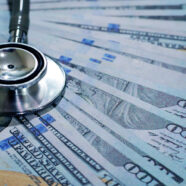Medical Debt Solutions: When Loans Help — and When They Hurt
Navigating Medical Loans: A Patient’s Guide to Financial Health
Medical bills don’t wait. They arrive fast, often when you’re least prepared — after an emergency, a diagnosis, or a procedure you didn’t expect to need. Suddenly, you’re not just thinking about your health. You’re thinking about how to pay for it. That’s where medical loans come in. They’re designed to help cover healthcare costs when your insurance falls short or you don’t have savings to lean on. But while they can offer relief in tough moments, they can also lead to long-term stress if you’re not careful. This guide is here to help you navigate them wisely — so your finances stay healthy too.
Read MoreLoan Defaults and Unemployment: Risks, Stats, and Solutions
Can Unemployment Lead to Loan Defaults?
Losing a job is tough. It’s stressful, unpredictable, and often hits when you least expect it. But when unemployment shows up and the bills keep rolling in, things get serious fast — especially if you have a loan. Mortgage, car loan, personal credit — none of it stops just because your paycheck does. And for many people, that’s when the real trouble begins. So, can unemployment lead to loan defaults? The short answer is yes. But it’s not automatic, and it’s not hopeless. Let’s look at why unemployment increases loan delinquency — and what you can do to avoid falling behind.
Read MoreThe True Cost of Borrowing: How to Spot and Limit Overpayment
How to Calculate the Overpayment on a Loan
When you take out a loan, you know you’re not just repaying the amount you borrowed. You’re also covering interest — the cost of borrowing — and sometimes fees. But how much extra are you really paying? That total difference between the amount you received and the amount you’ll repay over time is called overpayment. And if you don’t look closely, it can quietly eat into your budget. The number might surprise you. In this guide, we’ll walk through how to calculate overpayment on a loan, what affects it, and how to avoid paying more than you need to.
Read MoreEmergency Loans After Natural Disasters: What You Need to Know
Financing Recovery: The Importance of Loans After a Natural Disaster
Natural disasters leave behind more than just debris. They disrupt lives, close businesses, and put entire communities in crisis. After the floodwaters recede or the flames die down, one of the first questions survivors face is: how do we rebuild? Insurance payouts and government aid help — but they rarely arrive fast enough, or cover everything. That’s why loans play such a crucial role in disaster recovery. They’re not just financial tools; they’re lifelines that can speed up repair, restore income, and give families and businesses a fighting chance. But borrowing during a crisis isn’t always simple — and it comes with trade-offs worth understanding.
Read More




 Michael Turner is a finance expert passionate about simplifying credit, loans, and debt management. He helps readers make smart, confident financial decisions every day.
Michael Turner is a finance expert passionate about simplifying credit, loans, and debt management. He helps readers make smart, confident financial decisions every day.